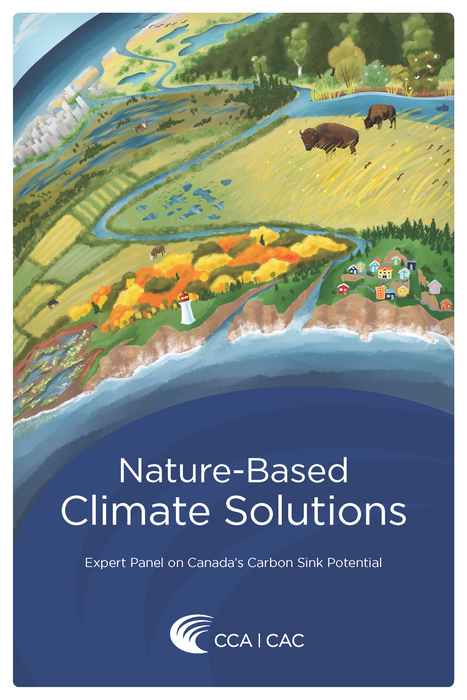Enhancing carbon storage in natural ecosystems could put a small but significant dent in Canada’s GHG emissions, but an aggressive commitment to reducing human-caused emissions remains critically important, according to a new expert panel report from the Council of Canadian Academies (CCA). Preserving these existing landscapes, however, is imperative to successful climate action — development and land-use changes, as well as increasing temperatures, make them vulnerable to disturbance and risk the release of more GHGs into the atmosphere.

Credit: Council of Canadian Academies
Enhancing carbon storage in natural ecosystems could put a small but significant dent in Canada’s GHG emissions, but an aggressive commitment to reducing human-caused emissions remains critically important, according to a new expert panel report from the Council of Canadian Academies (CCA). Preserving these existing landscapes, however, is imperative to successful climate action — development and land-use changes, as well as increasing temperatures, make them vulnerable to disturbance and risk the release of more GHGs into the atmosphere.
Full implementation of nature-based climate solutions (NBCSs) would mitigate a small fraction of Canada’s current annual emissions, even with aggressive support and deployment. Although modest, NBCSs can bring about other benefits, including coastal flood control, improved air and water quality, reduced soil erosion, enhanced property values, reduced urban heat-island effects, and greater biodiversity.
“On a global scale, the carbon stored in Canada’s forests, wetlands, grasslands, and coastlines is quite significant,” said Glen MacDonald, PhD, FRSC, Chair of the Expert Panel. “Canada has the opportunity to become a leader in nature-based climate solutions and it’s our hope that this report will help to inform both Canadian and international efforts to meet the global challenges of climate change.”
The Government of Canada has committed to reducing GHG emissions to at least 40% below 2005 levels by 2030 and achieving a net-zero Canadian economy by 2050. The Expert Panel on Canada’s Carbon Sink Potential determined that NBCSs can provide a way to protect, restore, and manage ecosystems that sequester carbon and help the government to meet its climate goals. But implementing NBCSs will require careful consideration of costs, policies, behavioural barriers, and technical impediments to determine which ones are the most promising for widespread use in Canada.
“The concept of natural carbon sinks has attracted a lot of attention in recent years for its potential to support climate policy, but their potential impact is complex,” said Eric M. Meslin, PhD, FRSC, FCAHS, President and CEO of the CCA. “This report explores some of the barriers to implementation as well as the benefits that could help inform improved ecosystem management and protection in Canada.”
Environment and Climate Change Canada, along with six other supporting federal departments and agencies, asked the CCA to examine the potential for enhancing carbon storage and reducing emissions through nature-based solutions to support climate change mitigation and adaptation planning in Canada.
Nature-Based Climate Solutions provides an overview of the potential of natural carbon sinks, options for enhancing carbon sequestration or reducing emissions in various ecosystems, and the potential co-benefits. The report also explores how Indigenous Peoples are key partners in carbon sequestration initiatives in Canada.
Visit www.cca-reports.ca to download the report.




